#gecamines
Text


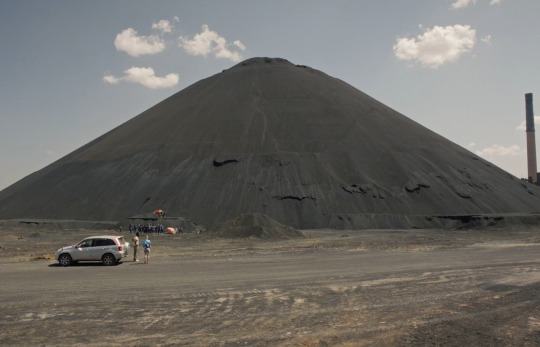

Augure / Omen
Baloji. 2023
Mountain
Mampala de la Gecamine, 8F7C+XCM, Lubumbashi, Democratic Republic of the Congo
See in map
See in imdb
#bajoli#augure#omen#lubumbashi#democratic republic of the congo#mine#congo#mining#gecamines#mountain#mask#marc minga#movie#cinema#film#location#google maps#street view#2023
31 notes
·
View notes
Photo
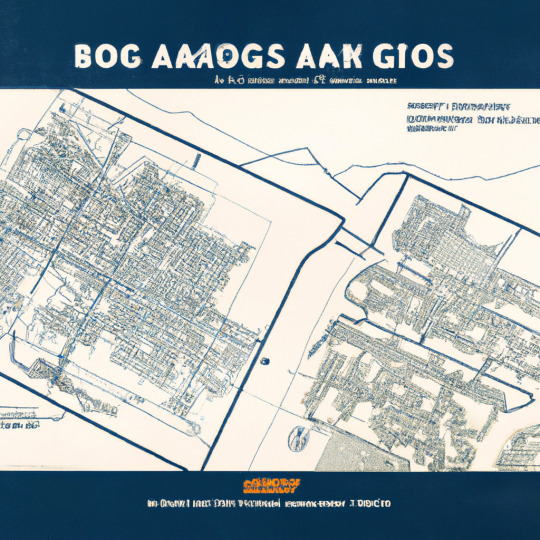
The news that ERG Africa's Boss Mining had signed a community development plan caused a ripple of excitement in the town. It seemed like a gift, a reward sent from some higher power, yet no one could guess what the plan entailed. People were left to ponder the mystery, wondering if it would bring hope, joy, or some other unexpected consequence. For the time being, all they could do was wait to see how things unfolded.
#Base Metals#Business and policy#Central Africa#News#Boss Mining#DRC#ERG Africa#Gecamines#fault#Community Development#Progress#Innovation
0 notes
Text
RDC : Deogratias Mutombo, Albert Yuma et Jacques Kamenga, sont interdits de quitter le territoire national !
Déogratias Mutombo ex-gouverneur de la banque centrale du Congo, Albert Yuma, président sortant de la Fédération des Entreprises du Congo (FEC), Jacques Kamenga ancien DG ai.i de la Gecamines, ainsi que deux directeurs de la BCC, et un cadre de la Rawbank, sont interdits de quitter le territoire national congolais suite à une décision de la Cour des Comptes.
Dans un document rendu public ce lundi…

View On WordPress
#Albert Yuma#Déogratias Mutombo ex-gouverneur de la banque centrale du Congo#Jacques Kamenga ancien DG ai.i de la Gecamines#Jimmy Munganga#l’Inspection Générale des Finances (IGF)#président sortant de la Fédération des Entreprises du Congo (FEC)#premier président de la Cour des comptes.
0 notes
Text
ABUJA, Nigeria (AP) — The mining of minerals critical to electric vehicle batteries and other green technologies in Congo has led to human rights abuses, including forced evictions and physical assault, according to a new report from Amnesty International and another rights group.
Congo is by far the world’s largest producer of cobalt, a mineral used to make lithium-ion batteries for electric vehicles and other products, and it is also Africa’s top producer of copper, which is used in EVs, renewable energy systems and more.
Rights groups and U.S. officials have long criticized the trade of Congo’s cobalt, copper and other minerals due to abusive labor and the risk of violence in an impoverished central African country where militants control swaths of territory.
A measure was introduced in the U.S. House in July to ban imported products containing cobalt and copper and mined through child labor and other abusive conditions in Congo.
The report released Tuesday by Amnesty International and the Congo-based Initiative for Good Governance and Human Rights, or IBGDH, details how the search for the minerals has forcibly uprooted people from their homes and farmland, often without compensation or adequate resettlement.
The groups said they interviewed 133 people affected by evictions related to cobalt and copper mining in six locations around the city of Kolwezi in Lualaba Province during separate visits in February and September 2022. They also reviewed documents, photos, videos, satellite images and company responses.
The report highlights the numerous human rights violations that have occurred as a result of mining activity.
In one case, Congolese soldiers burned down the Mukunbi settlement in the southern province of Lualaba in November 2016 to make way for cobalt and copper mining by Dubai-based Chemaf Resources.
Residents who tried to stop the military were beaten, according to the report. The fire, which left a 2-year-old girl with life-altering scars, and the assault had followed initial warnings delivered to residents by company executives escorted by police.
“Ernest Miji, the local chief, said that in 2015, after Chemaf acquired the concession, three representatives of the company, accompanied by two police officers, came to tell him it was time for Mukumbi’s residents to move away. He said the representatives visited four more times,” the report said.
Following protests in 2019, Chemaf agreed to pay $1.5 million through local authorities, with some former residents receiving between $50 and $300, which the local advocacy group Coalition for Safeguarding of Human Rights called an undervaluation of victims’ properties.
Chemaf denied any wrongdoing, liability or involvement in the destruction of Mukumbi or directing military forces to destroy it, the company told Amnesty International.
On its website, Chemaf says the copper and cobalt project is at the heart of its ambitious growth and would consolidate its position as a leader in the production of those minerals.
The report also highlighted a neighborhood in Kolwezi, home to 39,000 people, that has been facing continuous demolitions since 2015 to make way for an open-pit copper and cobalt mine. The mine is operated by Compagnie Minière de Musonoie Global SAS, or COMMUS, a joint venture between Chinese company Zijin Mining and the state-owned Gecamines mining company.
Those who were forced out said they were not adequately consulted, while COMMUS said it aimed to improve its communications, according to the report.
The company asserted that it already has made compensation payments calculated by the provincial government’s relocation committee to ensure residents' quality of life was not affected.
“The compensation prices of COMMUS for housing and land were higher than market prices,” according to a letter that the company sent to the rights groups.
But the groups denied it was enough.
“Despite claims by the company that its compensation package was set to ensure living standards were not affected, none of the former residents of Cité Gécamines that researchers interviewed said that they were able to afford substitute housing with the same amenities as the houses that they were forced to leave,” the report said.
Donat Kambola, president of the IBGDH group that co-wrote the report, said in a statement that “people are being forcibly evicted, or threatened or intimidated into leaving their homes, or misled into consenting to derisory settlements. Often there was no grievance mechanism, accountability, or access to justice.”
Amnesty International says companies are not doing enough to address human rights concerns and are disregarding international human rights laws and standards, as well as national legislation and U.N. Guiding Principles on Business and Human Rights.
As the world demands more green technologies to reduce climate-changing emissions, the extraction of minerals for these products is causing social and environmental harm, the group said.
“Amnesty International recognizes the vital function of rechargeable batteries in the energy transition from fossil fuels. But climate justice demands a just transition. Decarbonizing the global economy must not lead to further human rights violations,” it said.
14 notes
·
View notes
Text
The Democratic Republic of Congo aims to boost its stake in a cobalt and copper joint venture with Chinese firms to 70% from 32%, on concerns the deal gives away too much of Congo's resources with little benefit to the country.[...]
Sinohydro Corp and China Railway Group Limited had agreed to build roads and hospitals in exchange for a 68% stake in Sicomines, the cobalt and copper joint venture with Congo's state mining company Gecamines.[...]
The commission said Congo should seek a 60% stake in Sicomines for Gecamines and its subsidiary, a non-dilutable 10% stake for the state, and 30% for the Chinese companies, to make the joint venture deal fairer for Congo.
24 May 23
27 May 23
5 notes
·
View notes
Text
5. Early 20th century colonization in Africa and continued mineral exploitation
African colonialism experienced a persistence and intensity in the early 20th century, especially with regard to European countries' exploitation of mineral resources. European corporations, such as "Union Minière du Haut Katanga" in the Democratic Republic of the Congo and "De Beers Consolidated Mines Ltd." in South Africa, were awarded profitable mining concessions by colonial authorities (Newbury, 1981, Radmann, 1978). European businesses benefited greatly economically from these concessions, which granted them exclusive rights to prospect, mine, and export minerals. They also gained control over the wealth generated by minerals.
African miners were subject to a highly institutionalized system of exploitation by Europeans, who determined not only the price of imported commodities but also the raw material prices. For instance, "“import trade, like her export trade, was monopolized by the expatriate firms" (America, 2024). Colonial powers invested in roads, ports, railroads, and telecommunications networks as a means of facilitating the mining and export of minerals. The movement of minerals from mining areas to coastal ports for export to Europe and other markets was made easier by initiatives like the Cape to Cairo Railway and ports in South Africa and Tanzania (Williams, 1921, Oritsejafor & Cooper, 2021).
However, forced labour and other unfair practices were closely linked to the mining industry in colonial Africa. African labourers had to put up with unfavourable working conditions, inadequate pay, and forced recruiting practices. European colonial businesses frequently used local middlemen—sometimes via pressure or deception—to recruit labourers. In addition, Africans were subjected to arbitrary detention, brutality, and coercion as a result of raiding, people trafficking, and forced labour laws enforced by colonial authorities. Taxation and indentured servitude policies served as further barriers to exploitative labour arrangements for African populations. These actions served as a stark reminder of the harsh realities of colonialism, which placed African lives and livelihoods at risk in the quest of mineral wealth. In this setting, systematic mineral resource exploitation, ongoing economic reliance, and ongoing social and economic inequality were characteristics of African colonization in the early 20th century.
America, R. F. (2024). Monopolization, Exploitation, Business Disruption, Loss of Profits, and Unjust Enrichment—Siphoning the Benefits from Trade—The Case of Nigeria. In Accounting for Colonialism. Springer International Publishing AG.
Newbury, C. (1981). Out of the pit: The capital accumulation of Cecil Rhodes. The Journal of Imperial and Commonwealth History, 10(1), 25-49. https://doi.org/10.1080/03086538108582605
Oritsejafor, E. O., & Cooper, A. D. (Eds.). (2021). Africa and the global system of capital accumulation. Routledge.
Radmann, W. (1978). The Nationalization of Zaire's Copper: From Union Minière to Gecamines. Africa Today, 25(4), 25-47. Retrieved from https://www.jstor.org/stable/4185805
Williams, R. (1921). The Cape to Cairo Railway. Journal of the Royal African Society, 20(80), 241–258.
0 notes
Text
🇨🇩RDC: Félix Tshisekedi nomme un nouveau comité à la Gecamines
Gecamines
Kinshasa, 28 février 2023- Le chef de l’État Félix Tshisekedi a nommé un nouveau comité au sein de la Générale des carrières et des mines (GECAMINES). L’ordonnance portant mise en place de cette nouvelle équipe a été signée en date du 25 février.A travers cette ordonnance présidentielle lue sur les ondes de la télévision nationale, le chef de l’État a porté son dévolu sur Placide Kala…
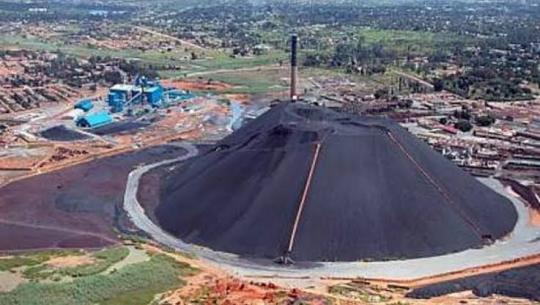
View On WordPress
0 notes
Text
Congo Miner Threatens to Seize Giant Cobalt Project From Chinese Partner
Congo Miner Threatens to Seize Giant Cobalt Project From Chinese Partner
(Bloomberg) — A shareholder dispute over one of the world’s biggest copper and cobalt mines is heating up in the Democratic Republic of Congo, after state miner Gecamines threatened to block exports or even take the mine away from its partner, China Molybdenum Co.
Most Read from Bloomberg
Congo’s Gecamines, which owns 20% of the Tenke Fungurume mine’s holding company, has accused CMOC of…
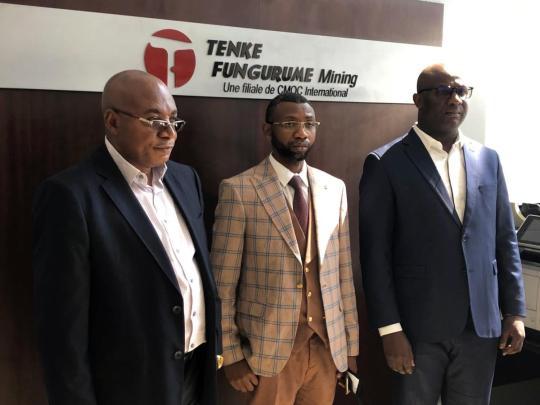
View On WordPress
0 notes
Text
L'inspection générale des finances a rendu public ses conclusions et ses recommandations sur la gestion de la Gecamines entre 2010 et 2020
L’inspection générale des finances a rendu public ses conclusions et ses recommandations sur la gestion de la Gecamines entre 2010 et 2020
Inspecteur général des finances Jules Alingete Key.
Le rapport et les recommandations de la gestion de la GECAMINES durant les deux dernières décennies a été rendu public par l’Inspection Générale des Finances que dirige le Professeur Jules Alingete.
L’IGF a informé l’opinion qu’elle vient de rendre public dans son site https://igf.gouv.cd/actualites les principales conclusions et recommandations…

View On WordPress
0 notes
Link
0 notes
Text
MSP Welcomes Estonia, Boosts Mineral Security

A Global Quest for Mineral Security
In an era where technology and sustainability intersect, the Minerals Security Partnership (MSP) emerges as a beacon of hope and innovation. As someone who's seen the evolution of environmental initiatives over the decades, I can't help but be intrigued by the MSP's recent developments.
Their efforts in securing a future where critical minerals are sourced responsibly are not just commendable but essential. Let's delve into the significance of the MSP's latest meeting and Estonia's pivotal inclusion in this global endeavor.
The Foundation of Global Cooperation
The MSP stands as a testament to international collaboration, with its sights set on fostering a diverse and sustainable supply chain for critical minerals. Beyond being mere ingredients for everyday gadgets, they constitute the backbone of the clean energy revolution.
Moreover, the recent principals' meeting in Toronto wasn't just a gathering; it served as a clarion call for responsible investment and heightened environmental, social, and governance (ESG) standards.
A Convergence of Minds and Missions
At this juncture, the MSP's meeting was more than a mere assembly; it was a demonstration of commitment to enhancing collaboration and setting new benchmarks for ESG standards worldwide.
The dialogue wasn't confined to abstract ideas; it revolved around actionable strategies to ensure a future where the global clean energy transition benefits everyone.
Estonia: A Strategic Ally Joins the Fray
Estonia's induction into the MSP isn't just a formality; it's a significant leap towards strengthening the partnership's capabilities. Renowned for its involvement in the production and processing of rare earth elements, Estonia's addition is akin to discovering a new strategic piece in a complex puzzle.
The MSP Forum: Catalyzing Change
With Estonia on board, the MSP unveiled the MSP Forum, a groundbreaking initiative aimed at formalizing engagements with mineral-producing countries.
This isn't just another platform; it's a forward-thinking approach to advancing projects that meet high ESG and labor standards, thereby shaping the future of mineral supply chains.
Projects Paving the Way
The MSP's commitment is exemplified through its diverse range of projects. From the EcoGraf Epanko Graphite Project in Tanzania to the Gecamines-JOGMEC MOU, each project underscores a dedication to fostering responsible critical mineral supply chains essential for the global energy transition. Furthermore, these efforts are not just investments; they're milestones towards a sustainable future.
The Impact on You and Me
You might wonder, "Why does this matter to me?" However, the answer lies in the ubiquity of these critical minerals. They power everything from our smartphones to our vehicles, consequently making the MSP's endeavors pivotal to ensuring a sustainable transition to clean energy. Additionally, it's about securing a livable planet for future generations.
A Collective Journey Towards Sustainability
The MSP's recent meeting, Estonia's welcome, and the establishment of the MSP Forum represent significant strides towards a sustainable future. These initiatives are not mere diplomatic gestures but foundational steps towards securing a responsible and diversified supply chain for critical minerals.
As we witness these developments, let's recognize the role of collaboration in safeguarding our planet. In the realm of critical minerals, the Minerals Security Partnership stands as a vital catalyst for change, embodying the collective effort required to navigate the challenges of the clean energy transition.
Sources: THX News & US Department of State.
Read the full article
#andgovernance(ESG)standards#criticalmineralsupplychains#diverseandsustainablesupplychains#Environmental#EstoniaandMSP#globalcleanenergytransition#highESGandlaborstandards#MineralsSecurityPartnership#MSPForum#responsibleinvestmentincriticalminerals#social#sustainablecriticalminerals
0 notes
Text
RDC : Tshisekedi nomme différentes personnalités à la tête de la DGDA, DGI, DGRAD, GECAMINES et FOMIN
RDC : Tshisekedi nomme différentes personnalités à la tête de la DGDA, DGI, DGRAD, GECAMINES et FOMIN
A travers des ordonnances présidentielles lues à la Radio Télévision Nationale Congolaise (RTNC), ce vendredi 3 décembre 2021, le Président de la République, Félix-Antoine Tshisekedi Tshilombo, a procédé à la nomination de différentes personnalités à la tête des entreprises publiques.
Pour le compte de la Direction Générale des Douanes et Accises (DGDA), Blondine Kawanda, Bernard Kabese Musangu,…
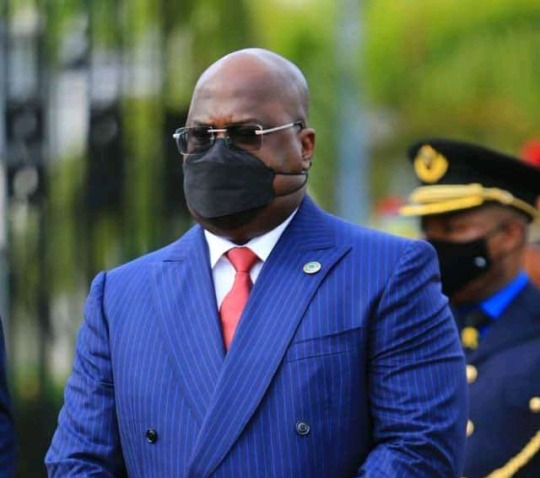
View On WordPress
0 notes
Photo
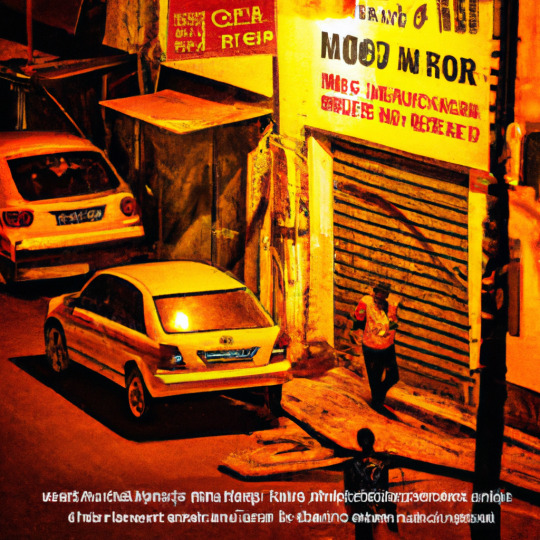
ERG Africa's Boss Mining signs community development plan. The enormous, imposing building stands as a monument to progress and innovation, a gleaming symbol of the future. But beneath the shining surface, darkness pervades.
#Base Metals#Business and policy#Central Africa#News#Boss Mining#DRC#ERG Africa#Gecamines#fault#Community Development#Progress#Innovation
0 notes
Text
RDC : Deogratias Mutombo, Albert Yuma et Jacques Kamenga, sont interdits de quitter le territoire national !
Déogratias Mutombo ex-gouverneur de la banque centrale du Congo, Albert Yuma, président sortant de la Fédération des Entreprises du Congo (FEC), Jacques Kamenga ancien DG ai.i de la Gecamines, ainsi que deux directeurs de la BCC, et un cadre de la Rawbank, sont interdits de quitter le territoire national congolais suite à une décision de la Cour des Comptes.
Dans un document rendu public ce lundi…
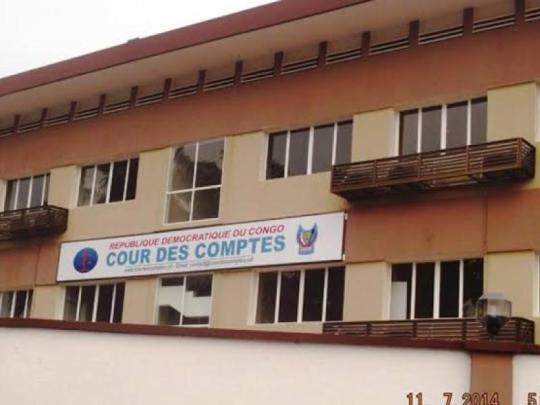
View On WordPress
#Albert Yuma#Déogratias Mutombo ex-gouverneur de la banque centrale du Congo#Jacques Kamenga ancien DG ai.i de la Gecamines#Jimmy Munganga#l’Inspection Générale des Finances (IGF)#président sortant de la Fédération des Entreprises du Congo (FEC)#premier président de la Cour des comptes.
0 notes
Text
RDC : Le Conseil d’administration de la Gécamines apporte son soutien au Premier Ministre Sama Lukonde
RDC : Le Conseil d’administration de la Gécamines apporte son soutien au Premier Ministre Sama Lukonde
Au lendemain de sa prise effective des fonctions en tant que Chef du Gouvernement de l’Union Sacrée de la Nation, le Premier Ministre, Jean-Michel Sama Lukonde Kyenge, a reçu, en son Cabinet de travail le mercredi 28 avril, une importante délégation de la Gécamines (Générale des carrières et des mines), conduite par le Président du Conseil d’Administration, Albert Yuma Mulimbi.
Comme un seul…

View On WordPress
0 notes
Text
2 notes
·
View notes